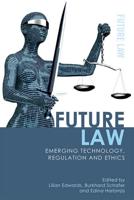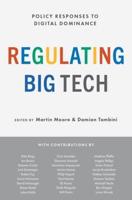Publisher's Synopsis
This ground-breaking and timely book explores how big data, artificial intelligence and algorithms are creating new types of agency, and the impact that this is having on our lives and the rule of law. Addressing the issues in a thoughtful, cross-disciplinary manner, the authors examine the ways in which data-driven agency is transforming democratic practices and the meaning of individual choice.
Leading scholars in law, philosophy, computer science and politics analyse the latest innovations in data science and machine learning, assessing the actual and potential implications of these technologies. They investigate how this affects our understanding of such concepts as agency, epistemology, justice, transparency and democracy, and advocate a precautionary approach that takes the effects of data-driven agency seriously without taking it for granted.
Scholars and students of law, ethics and philosophy, in particular legal, political and democratic theory, will find this book a compelling and invaluable read, as will computer scientists interested in the implications of their own work. It will also prove insightful for academics and activists working on privacy, fairness and anti-discrimination.
Contributors include: J.E. Cohen, G. de Vries, S. Delacroix, P. Dumouchel, C. Ess, M. Garnett, E.H. Gerding, R. Gomer, C. Graber, M. Hildebrandt, C. Maple, K. O'Hara, P. Ohm, m.c. schraefel, D. Stevens, N. van Dijk, M. Veale









